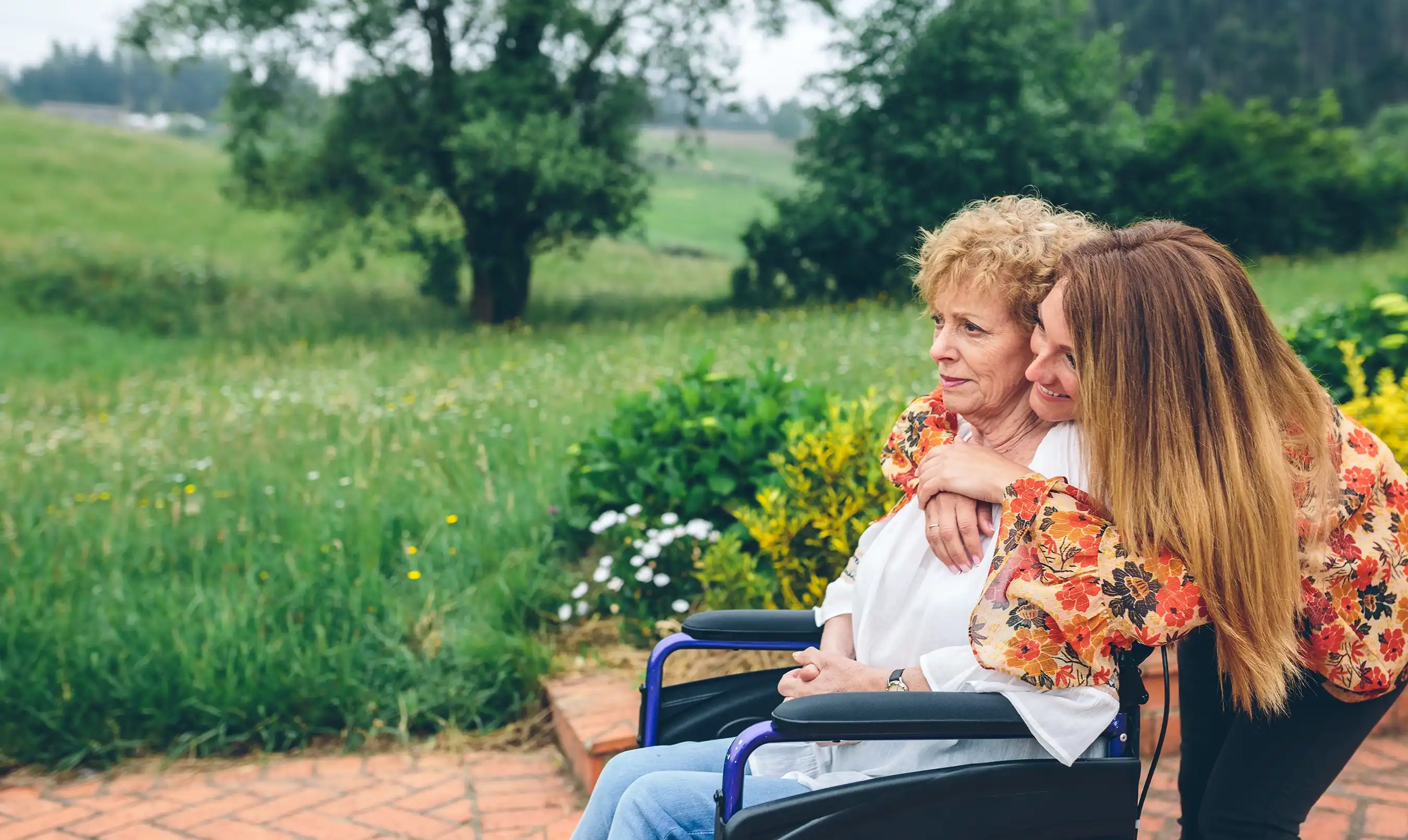Caring for an Aging Adult
As the number of people over 65 grows, more of us will care for aging parents, siblings and friends. Many aging adults also want to stay in their own homes, which can make caregiving challenging. If you’re caring for an aging adult:
- Listen and acknowledge their feelings about receiving help.
- Let them help define the level of care needed.
- Gradually introduce help and new people who can help share caregiving tasks.
- Build a support system and align on what is best for the person you are caring for.
- Bring their primary care physician into the conversation early and often.
For more information on caring for an aging adult, visit Getting Started Caregiving.
Caring for a Person with a Disability
A person with a disability may need someone to help with personal care, medical services, transportation and more. If you’re caring for a person with a disability:
- Get a formal diagnosis to understand their medical and physical needs.
- Create a plan with them for their care and include ways to care for yourself.
- Build a support system that aligns with their needs and preferences.
- Ask questions and learn about services for people with disabilities.
For more information, review the CDC's Caregiving Tips. To learn about caring for a child with disabilities, visit Navigate Life Texas.
Becoming a Caregiver
Diagnosis
Research
Discussion
Planning
Community
Self-Care

With advancements in at-home care, caregivers have a growing list of responsibilities. You may need to provide more advanced care for a longer period. At the same time, caregiving can be physically and emotionally demanding. Long-term caregiving can affect your finances and productivity at work. Because of these challenges, you may need support to stay healthy and in your caregiving role. Texas has many support services including:
- Financial and health insurance assistance.
- Parenting resources.
- Respite and long-term care.
- Support groups.
Support for Caregivers
People caring for an aging adult or person with a disability can receive support through various programs in Texas.
Area Agencies on Aging
The 28 area agencies on aging (AAAs) provide services to help people ages 60 and older. AAAs can help caregivers and family members get more information on aging. They can also help locate and access community services.
For more details, visit the Area Agencies on Aging page.
Aging and Disability Resource Centers
Aging and disability resource centers (ADRCs) help caregivers find long-term services and supports. ADRCs can refer you to a long-term care provider. They can also simplify the process of applying for funding.
To find an ADRC and learn more, visit the Aging and Disability Resource Centers page.
Texas No Wrong Door
Many people will, at some point, need help with tasks like getting dressed, driving or making meals. Long-term care is a range of services and supports to help meet these personal care needs. Texas No Wrong Door can help you understand what long-term care options you have and how to pay for them.
To learn more, visit Texas No Wrong Door.
Children’s Autism Program
The Texas Health and Human Services Children’s Autism Program provides focused applied behavioral analysis (ABA) treatment for certain children with autism. Focused ABA treatment targets specific behaviors in children to help teach social and adaptive skills and reduce challenging behaviors. The Children’s Autism Program works with local community agencies and organizations across Texas to provide services.
For more details, visit the Children's Autism Program page.
